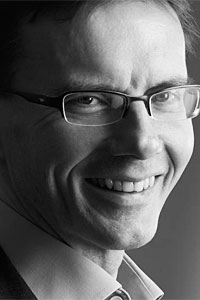
Soon after the May 2014 coup I joined the faculty of Mahidol University and was asked to teach a course on "Democracy as a Political System". I wondered at what seemed a poisoned chalice. A colleague told me, only half-joking, to keep a wad of cash for a sudden escape. The subject was not new, but the setting was: how do you teach democracy in a country that has just suspended it?
The answer is: in the same way that you should teach democracy anywhere. By giving students the critical tools to think about the issues. By getting them to engage with unfamiliar points of view. By encouraging them to develop their own perspective.
In this spirit we explore the arguments used for and against democracy throughout history -- only in the last few decades have the former gained the upper hand. We look at the strengths and weaknesses of democracy as a form of government. We consider the ambiguities, even contradictions, of the easy formulation "rule by the people". We examine the various designs of democratic systems that have tried to put this principle into practice, and we compare their performance.
We consider how and why countries become democratic. Is democracy a delicate "hothouse plant" that only thrives in a particular social or cultural soil, or is it a "hardy shoot" sustained by human aspirations that are universal in nature?
We end by considering the future of democracy. Enduring tensions between its principles and practice make democracy an unfinished journey, especially in an era of transformative change. Are globalisation and democracy compatible? Will the revolution of virtual media invigorate or weaken popular rule? What of the rising challenge from non-democratic states?
All these questions are more complex than the shrill simplicities of pundits and soundbites admit. None has an easy answer, and few answers are final. No less important is to discuss them in a democratic spirit. Consider an argument on its merits and not because of who expresses it. By all means hold strong views, but listen respectfully to others. Tell someone why you disagree: don't tell them they are wrong.
What I do not do is share my views, at least not in the classroom. That is not the place for them: my job is to illuminate, not advocate. Occasionally a student will press me to say what I "really" believe, perhaps hoping they will get a better grade if they repeat this in the exam. I reply that a well-argued case will earn more credit than a poorly argued one, whether or not I happen to support its conclusions.
None of this should detract from the cases of students and educators who have been detained for expressing peaceful political views. But it is possible to create space for real discussion of democratic ideas and practice in a way that can benefit, and even bring together, supporters, opponents and the undecided alike. Those who value democracy should remind themselves why they believe what they do. Orthodoxy becomes complacent if it is not tested and kept sharp by contact with criticism. Worse, it can lead to didactic condescension towards those who disagree.
A new academic year has begun at Mahidol, and enrolment in our democracy course has doubled. After the recent Thai constitutional referendum and the Brexit vote, and in the midst of a US presidential election campaign unlike any other, questions of why democracy should be valued, how well it is working, and what its future might look like are being posed more widely and urgently than ever.
There is no better time to study democracy -- and not only in Thailand.
Nigel Gould-Davies teaches at Mahidol University International College. He holds a PhD from Harvard University and is an associate fellow of the Royal Institute of International Affairs.
